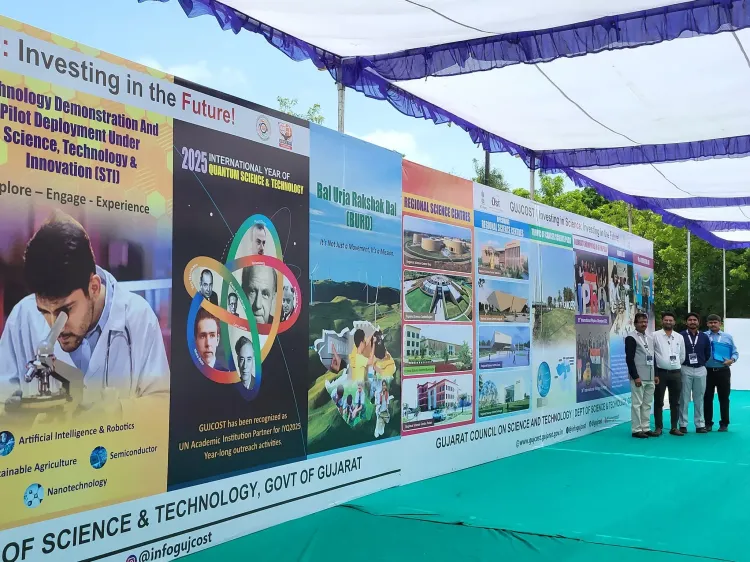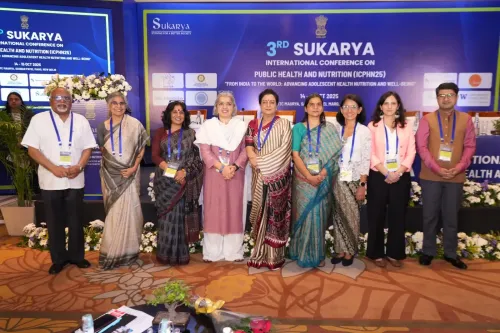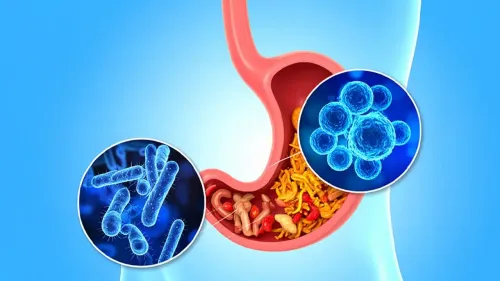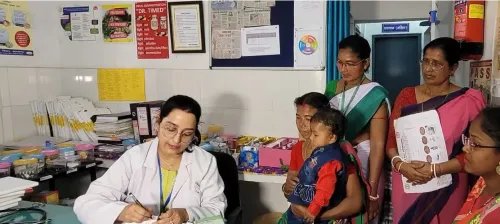How can India’s research institutions be transformed into globally competitive entities?

Synopsis
Key Takeaways
- Urgency for transformation of research institutions in India.
- Need for institutional benchmarking and simplified compliance.
- Importance of collaboration between academia and industry.
- Focus on translational research and enhancing access to resources.
- Strengthened frameworks for funding and regulatory support.
New Delhi, Aug 14 (NationPress) Dr VK Saraswat, a Member of NITI Aayog, has emphasized the pressing need to convert India’s research institutions into globally competitive entities, as reported on Thursday.
He advocated for institutional benchmarking, the simplification of compliance processes, and stronger links between academia and industry to foster a high-impact research culture. He pointed out that minimizing friction throughout the research lifecycle is essential for promoting national scientific objectives and achieving self-sufficiency in vital technology sectors.
NITI Aayog convened the fifth consultative meeting on ‘Ease of Doing Research & Development (R&D)’ organized by GUJCOST at Science City in Ahmedabad.
The objective of the meeting was to reach consensus on diminishing procedural obstacles, enhancing access to knowledge resources, boosting institutional competitiveness, increasing focus on translational research, and creating a more supportive environment for R&D across the nation.
Professor Vivek Kumar Singh, Senior Adviser at NITI Aayog, stressed the importance of structural reforms, agile regulations, and robust institutional frameworks to improve R&D in India.
P. Bharathi, Secretary of DST, Gujarat, reaffirmed the state’s dedication to establishing a strong research ecosystem in line with the Prime Minister’s vision for Viksit Bharat.
Dr Nilesh Desai, Director of SAC–ISRO, announced a 12-day outreach program for ‘National Space Day’ and emphasized the necessity for an optimized R&D environment.
In his keynote address, Dr. R.A. Mashelkar, former DG of CSIR, evaluated the R&D landscape, pinpointed critical gaps, and proposed actionable strategies for advancement.
The two-day consultative meeting concentrated on thorough discussions regarding key themes such as fortifying the R&D ecosystem, boosting funding and regulatory frameworks, and improving access to knowledge resources.
Conversations revolved around understanding current institutional structures and processes, identifying shortcomings, and exploring strategies for remediation, placing significant emphasis on administrative agility and regulatory responsiveness. Participants highlighted the essential need to strengthen foundational enablers, including streamlined funding mechanisms, robust research infrastructure, and simplified regulatory procedures.
The dialogue underscored the significance of coordinated efforts and translational research in unlocking India’s complete research and innovation potential, according to a statement from NITI Aayog.









